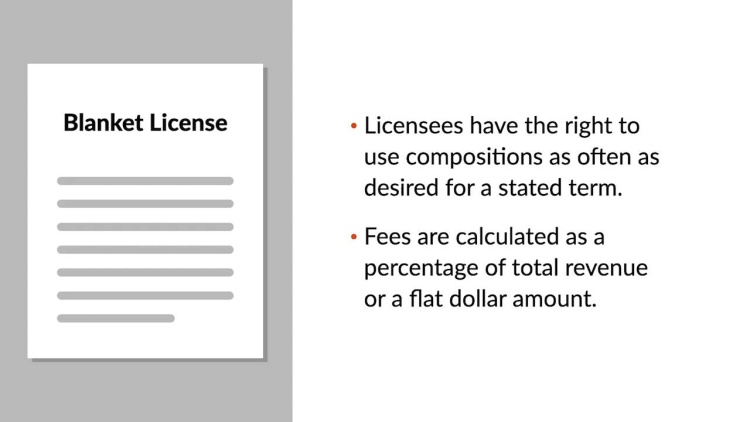Broadcast Music, Inc. v. Columbia Broadcasting System, Inc.
United States Supreme Court
441 U.S. 1, 99 S. Ct. 1551, 60 L.Ed.2d 1 (1979)
- Written by Nicholas Decoster, JD
Facts
Broadcast Music, Inc. (BMI) (defendant) was established as an intermediary in the market for individual musical compositions. Previously, thousands of owners of the copyrights in musical compositions had difficulty negotiating licensing with individual users and also struggled to detect and police the unlicensed use of the copyrights by infringers. BMI and the American Society of Composers, Authors and Publishers (ASCAP) helped to ameliorate these issues by allowing copyright owners to license their compositions collectively in a blanket license. The blanket license allowed licensees to perform any of the works included in the license. Between BMI and ASCAP, nearly every copyright-protected composition in the United States could be utilized through the blanket licenses. Columbia Broadcasting System, Inc. (CBS) (plaintiff) purchased blanket licenses for its television and radio programming. Believing that the blanket licenses amounted to price fixing and that BMI and ASCAP were unlawful monopolies in the market for composition, CBS brought a lawsuit against BMI and ASCAP, alleging per se antitrust violations. The district court held that the blanket licenses were not per se violations, but the court of appeals reversed, finding that the blanket licenses constituted price fixing. BMI appealed the decision.
Rule of Law
Issue
Holding and Reasoning (White, J.)
What to do next…
Here's why 905,000 law students have relied on our case briefs:
- Written by law professors and practitioners, not other law students. 47,100 briefs, keyed to 995 casebooks. Top-notch customer support.
- The right amount of information, includes the facts, issues, rule of law, holding and reasoning, and any concurrences and dissents.
- Access in your classes, works on your mobile and tablet. Massive library of related video lessons and high quality multiple-choice questions.
- Easy to use, uniform format for every case brief. Written in plain English, not in legalese. Our briefs summarize and simplify; they don’t just repeat the court’s language.





